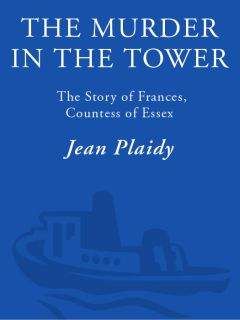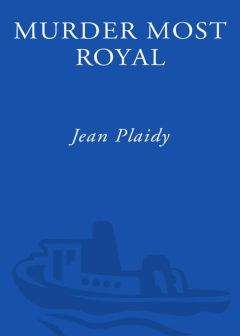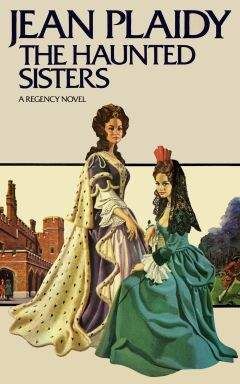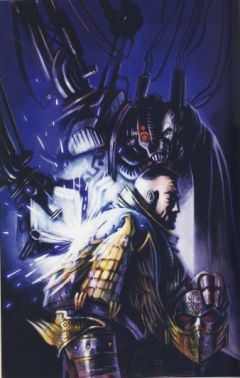At length Nell said: “For the moment I was ready to run.”
“That would have been unwise,” said the hunchback. “That would have been the worst thing we could have done.”
“If we could only make … the boy understand!”
“I have often been relieved because he is so young … too young to understand; and yet if only we could explain…. But how could one so young be expected to understand?”
The child, knowing itself to be the subject of discussion, was listening eagerly. The hunchback noticed this and said: “What will there be to eat at this inn of yours, Tom? Mayhap a little duck or snipe … peacock, kid, venison. Mayhap lampreys and sturgeon …”
“We must remember our stations,” said the hunchback.
The child wished to bring the conversation back to itself. The little hands beat the hunchback. “Nan … Nan …” said the child. “Dirty Nan! Don’t like dirty Nan.”
“Hush, dearest, hush!” said the hunchback.
“Want to go home. Want clean Nan … not dirty Nan.”
“Dearest, be good. Only a little while longer. Remember you are Pierre … my little boy.”
“Little girl!” said the child.
“No, dearest, no! You are Pierre … Pierre for Peter.”
“No Pierre! No Pierre!” chanted the child. “Dirty Nan! Black lady! Want to get down.”
“Try to sleep, my darling.”
“No sleep! No sleep!”
Two soldiers had rounded the bend and were coming toward the party, who immediately fell silent; but just as the two men drew level with them, the child called to them: “Me … Princess. Dirty frock … not mine … Me … Princess!”
They stopped. The hunchback smiled, but beneath the grime and dust her face grew a shade paler.
“What was it the little one said?” asked one of the soldiers.
It was the hunchback who answered. “Your pardon, Messieurs. I and my husband do not speak the English very well. Nor does our son. He is telling you his name is Pierre. That is Peter in English.”
One of the soldiers said: “I thought the boy said he was a Princess.”
The child smiled dazzlingly and chanted: “Princess! Princess! Don’t like black lady. Want clean Nan.”
The soldiers looked at each other and exchanged smiles. One of them brought his face near to that of the child. “So you’re a Princess, eh, young fellow?” he said. “I’ll tell you something.” He nodded his head in the direction of his companion. “He’s Oliver Cromwell and I’m Prince Charley.”
“Forgive, Monsieur,” said the hunchback quickly. “We mean no harm. We are walking to Dover to the house of our master.”
“To Dover, eh!” said the soldier. “You’re on the right road but you’ve many hours’ journey before you yet.”
“Then we must hasten.”
The second soldier was smiling at the child. “Listen to me, little ’un,” he said. “’Tis better in these days to be the son of a hunchback than the daughter of a King.”
“Ah, Messieurs!” cried the hunchback. “You speak truly. I thank God these days that I am a poor hunchback, for I remember there are others in worse case.”
“God’s will be done,” said the soldier.
“God be with you,” said the hunchback.
“And with you, woman. And with you all. Farewell, Princess Peter.”
The child began to wail as they continued along the road. “Me Princess. Want my gown. Don’t like dirty Nan.”
Again that silence; again that tension.
Nell said: “Can it go on? Shall we be so lucky every time?”
“We must be,” replied the hunchback grimly.
This is a work of fiction. Names, characters, places, and incidents either are the product of the author’s imagination or are used fictitiously Any resemblance to actual persons, living or dead, events, or locales is entirely coincidental.
Copyright © 1964, copyright renewed 1992 by Jean Plaidy
Excerpt from The Wandering Prince copyright © 1956, 1971 by Jean Plaidy, included in The Loves of Charles II published by Three Rivers Press, an imprint of the Crown Publishing Group, a division of Random House, Inc., in 2005.
All rights reserved.
Published in the United States by Three Rivers Press, an imprint of the Crown Publishing Group, a division of Random House, Inc., New York.
www.crownpublishing.com
Three Rivers Press and the Tugboat design are registered trademarks of Random House, Inc.
Originally published in hardcover in Great Britain by Robert Hale & Company, London, in 1964, and subsequently published in hardcover in the United States by Putnam, New York, in 1974.
Library of Congress Cataloging-in-Publication Data
Plaidy, Jean, 1906–1993.
The murder in the tower : the story of Frances, Countess of Essex /
by Jean Plaidy. — 1st Three Rivers Press ed.
p. cm.
eISBN: 978-0-307-71764-1
1. James I, King of England, 1566–1625—Fiction. 2. Somerset, Frances
Howard Carr, Countess of, 1593–1632—Fiction. 3. Great Britain—Kings and rulers—Fiction. I. Title.
PR6015.I3M83 2010
823′.914—dc22
2009044482
v3.0





